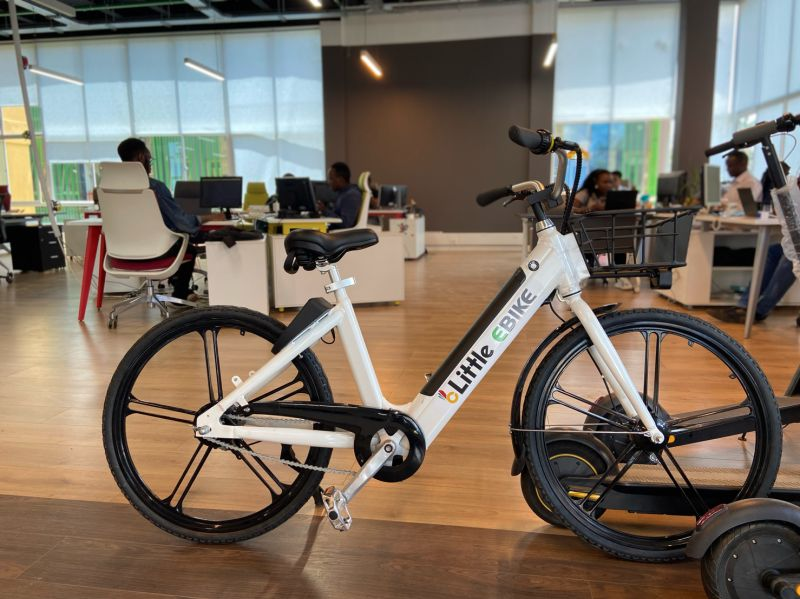Little, a popular app in Kenya, announced that its line of electric bikes and scooters for getting around will be available soon. The company spent years perfecting the bikes’ efficiency and design before announcing its launch intentions earlier in March 2022.
Little is a huge app that works all over Africa. In cities in Kenya, Uganda, Tanzania, Ethiopia, and Somalia, you can use it to order a ride, get food delivered, pay your bills, and more.
Kenya has seen a rise in the use of electric vehicles for public transportation this year. Kenya is on the route to becoming Africa’s electric mobility hub due to actions like Little’s debut.
This incident occurs as Kenya struggles with a severe gasoline scarcity that is pushing up fuel prices and having a negative impact on the majority of Kenyans’ way of life. In addition, the area is experiencing a severe air pollution problem that is killing people and harming their health. In 2019, air pollution was blamed for over 5000 premature deaths nationwide.
The tough conditions brought on by the increase in gasoline prices have, in some ways, fostered the growth of electric mobility options in the east African nation. Little, a regional leader in transportation for a long time, is now getting into the new electric transportation industry.
Read also: Nigerian mobility company, Uber has launched its first bike-hailing service in Nigeria
Little’s bikes are made primarily of easily recycled materials like steel and aluminium, and the CEO claims that they can run for up to 24 hours on a single charge. Little said 200 electric bikes would reportedly be distributed by Little around several designated locations throughout Nairobi, the nation’s capital.
Users can activate the bikes by downloading the app and scanning the code on each bike. When the bikes are used with a mobile wallet on the app, 60 KES (about 50 cents) will be taken out to unlock the bike for an hour remotely.
The decision was part of Little’s commitment to ensure the adoption of electric mobility in Kenya, according to the CEO, Kamal Budhabhatti.
“While electric vehicles (EV) are relatively nascent in Kenya, Little plans to play a vital role in working with consumers, partners, and governments to accelerate their adoption.”
“As government EV policies and incentives are implemented and essential infrastructure like charging stations is to be built, this launch will provide insights and best practices on the usage of EVs as part of the day-to-day usage of customers,” he added.
As the first and only African nation where Bolt introduced commercial electric bikes, Kenya made headlines last year. Since then, Kenya has been making rapid progress toward electric mobility, with this news being the most recent development. It is still debatable whether the mass adoption of electric mobility is on the right track. For instance, few government programs in Kenya are targeted toward improving roads for motorcycles like Little’s.
Kalua Green, the founder of the Green Africa Foundation, an organisation that supports sustainable communities, commented on this: ”The challenges facing this range from policy and infrastructure to the other requirements that the government has not met. The infrastructure [is important] because our roads do not currently encourage cyclists.”
More information on Little Cab
A Kenyan business in Westlands, Nairobi, Craft Silicon Ltd., owns the cab hailing system known as Little Cab. It is an automated system for getting mobile devices from one place to another. Both private people and businesses can use it. Little Cab and Safaricom are working together to create the technology platform on which the app runs. It has signed up taxi drivers all over the country, and the first rollout will happen in Nairobi in the coming weeks.
To use the service, customers must download the Little Cab app from the Playstore for Android, Windows, and iOS. The base fee for Little Cab is 270KES, and it costs 55KES per kilometre and 4KES per minute on top of that.
Once the app has been downloaded, users will be asked to sign up for the service by providing personal information. Users can access or request the service after getting a confirmation SMS. A Little Cab will then be sent to their location.
When the cab pulls up, the passenger gets inside and tells the driver where they’re going. The driver then starts the ride and stops when they get there. The consumer will be given the final fare breakdown to pay for the trip after the driver ends it on the application. The customer will also give the driver a rating.
Advantages for people using Little Cab
“Little’’ is a better option due to the following factors: no surge and it’s permanent; being the most cost-effective cab app solution in Kenya; offering car ride options such as Basic, Comfort, and Lady Bug; free WiFi for customers while on the go; being secure with cashless payments via Lipa Na Mpesa; providing a fare estimate before the trip; being the preferred FM station to listen to while on the trip; and providing a live fare while on the trip.




